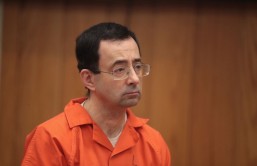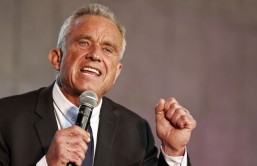The first words spoken by Neil Armstrong on the Moon on July 20, 1969, have been debated for almost four decades. Speech scientists now say that Armstrong may have spoken the word "a" in his well-known moon quote.
When Neil Armstrong became the first one to set foot on the moon he uttered the famous moon qoute, "That's one small step for a man, one giant leap for mankind." But either due to long distance transmission or Armstrong's Ohio accent, millions of listeners back on Earth heard it a little differently, "That's one small step for man, one giant leap for mankind." The missing "a" in the phrase as heard on Earth makes the quote redundant as "man" and "mankind" here have the same meaning.
A team of speech experts and psychologists from Ohio State University in Columbus and Michigan State (MSU) University in Lansing analyzed the legendary moon quote and say that the "a" got lost maybe due to Armstrong's native Ohio accent.
The team says that Armstrong's native accent could be the reason why millions of listeners on Earth misheard the moon quote. Armstrong was born in the village of Wapakoneta, a town in the northwestern corner of Ohio in 1930. Ohioans have their unique accent where they often blend words like "for" and "a" in conversational speech. The Acoustical Society of America described the blended words to sound like "frrr(uh)", which may have been the case with Armstrong when he said, "That's one small step for a man" and the indefinite article was not heard.
"Prior acoustic analyses of Neil Armstrong's recording have established well that if the word 'a' was spoken, it was very short and was fully blended acoustically with the preceding word," Laura Dilley, co-presenter of Michigan State University, said in a press release.
Dilley worked with MSU linguist Melissa Baese-Berk and OSU psychologist Mark Pitt. They analyzed the duration of the "r" sound in Armstrong's quote and compared it with native Ohio speakers blending "for a" in natural conversation.
The team listened to the recording of 40 people raised in Columbus, Ohio, which is close to Armstrong's native town. In the recordings, the experts found 191 cases of "for a." They measured the duration of the "r" sound and compared it with the duration of Armstrong's "for (a") from the lunar transmission.
The speech scientists found a large overlap between the duration of "r" sound in "for" and "for a." According to the scientists, Armstrong's duration of the "r" sound was 0.127 seconds, which falls somewhat in the middle but is slightly closer to "a"-less "for."
"We've bolstered Neil Armstrong's side of the story," Dilley said. "We feel we've partially vindicated him. But we'll most likely never know for sure exactly what he said based on the acoustic information." Researchers concluded that the moon quote is highly compatible with either possible interpretation.
The team findings is to be presented at the 21st International Congress on Acoustics (ICA 2013), held June 2-7 in Montreal.








